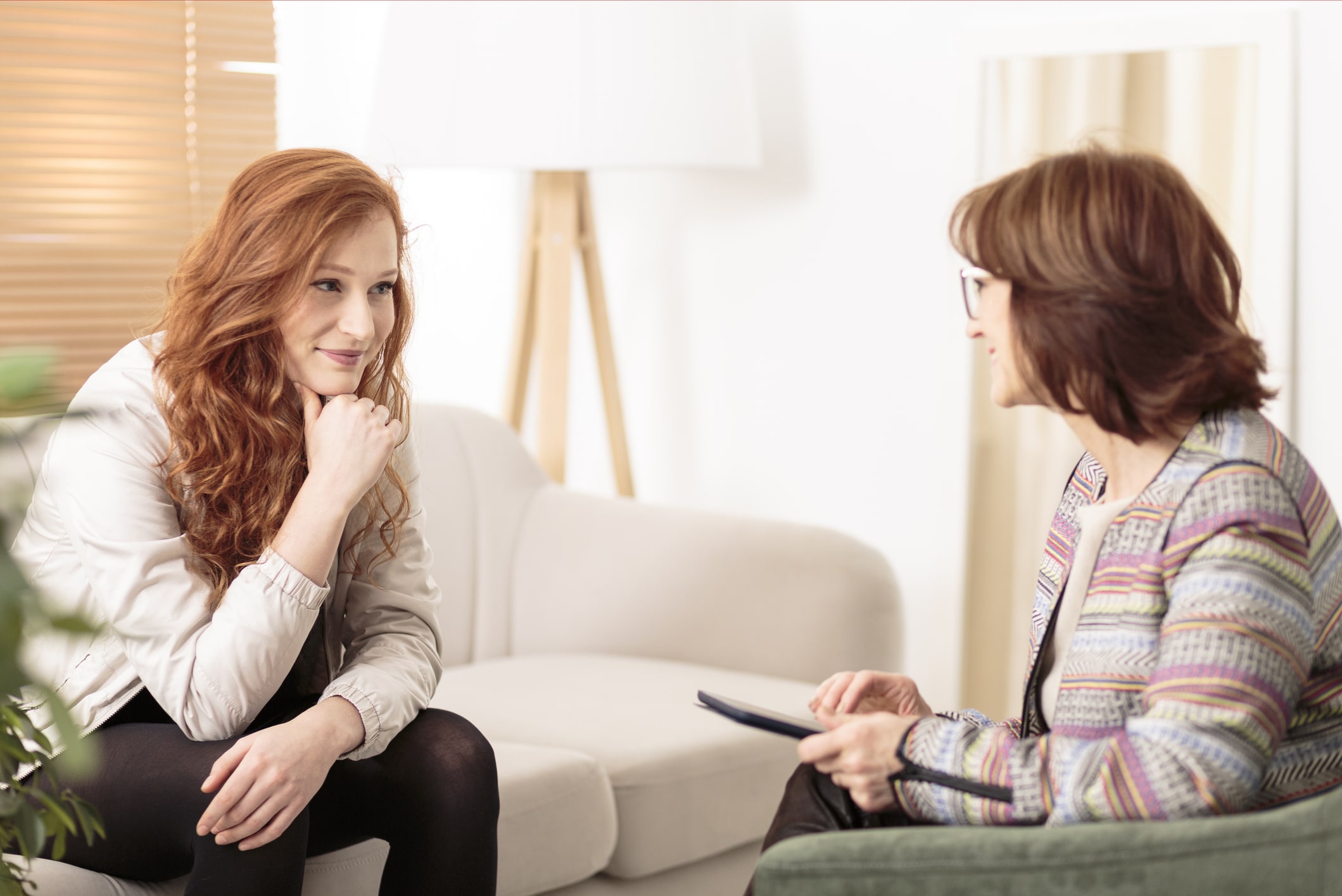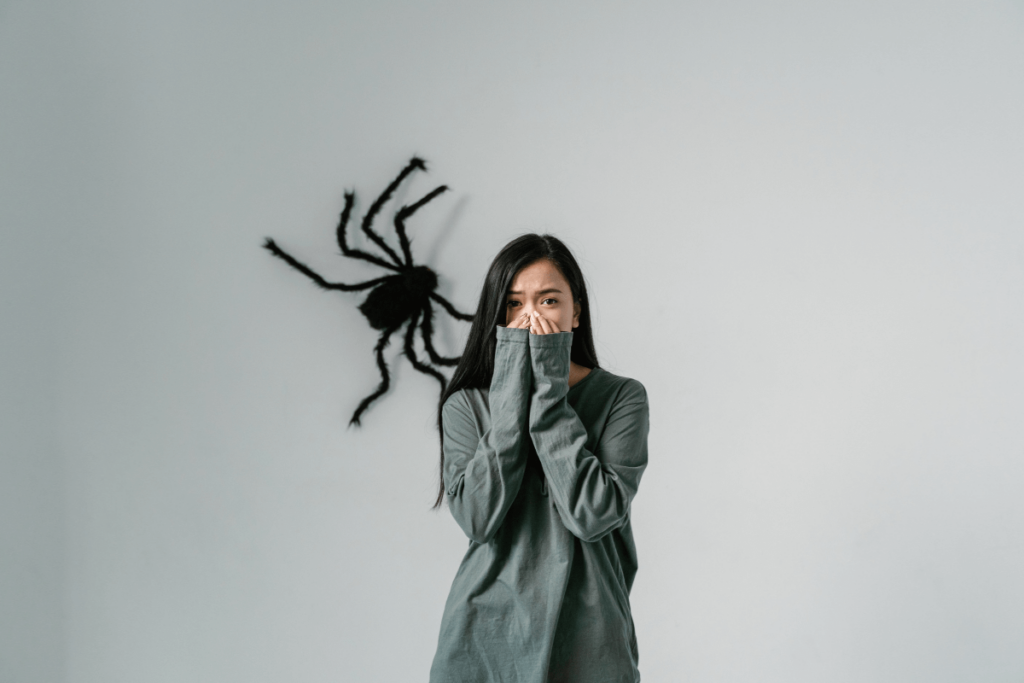If you’re afraid of spiders, the sight of blood, or speaking in public, you are far from alone. But what about if you fear vegetables, clowns, or books? Does anyone else have weird phobias like these, and can they be treated? (Spoiler alerts: Yes, and yes!)
Are you or a loved one struggling with addiction? Our team is available now to answer your questions, discuss treatment options, and verify your insurance. Take the first step toward healing—call us today to get started.
What Is a Phobia?
From a clinical perspective, a phobia is a type of anxiety disorder that can cause excessive worry, disproportionate fear, and overwhelming distress in response to certain experiences or circumstances.
The symptoms of some types of anxiety disorders – such as generalized anxiety disorder (GAD) and panic disorders – may occur out of the blue, with no apparent cause.
For phobias, though, the worry, fear, and distress have identifiable triggers, such as being in an enclosed space, having blood drawn, or seeing a certain animal.

Common Phobias
The anxiety disorders section of the fifth edition of the Diagnostic and Statistical Manual of Mental Disorders (DSM-5) includes 11 conditions, three of which include the word “phobia”:
Agoraphobia involves intense fear of being in places that would be difficult to escape, or where help might not be available in the event of a panic attack, such as:
- Planes, buses, and other types of public transportation
- Parking lots, bridges, and other wide-open spaces
- Theaters, small stores, and other enclosed places
- Among a large crowd of people or standing in line
- Being anywhere outside your home by yourself
Social anxiety disorder (social phobia) is characterized by excessive fear of situations during which you might be scrutinized, judged harshly, or rejected. The types of circumstances that might be extremely distressing for someone with social phobia include:
- Dining in a restaurant
- Being introduced to new people
- Giving a speech or presentation
- Participating in a group discussion
- Using a public restroom
Specific phobia is somewhat of a catch-all category, encompassing intense fear or worry related to an individual object, animal, or situation. Examples of some of the more common types of phobias that fall beneath the specific phobia umbrella include:
- Arachnophobia: Fear of spiders
- Acrophobia: Fear of heights
- Aerophobia: Fear of flying
- Atychiphobia: Fear of failure
- Claustrophobia: Fear of enclosed spaces
- Glossophobia: Fear of speaking in public
- Hemophobia: Fear of blood
- Mysophobia: Fear of germs, contamination, or infection (sometimes also called germaphobia)
- Ophidiophobia: Fear of snakes
- Trypanophobia: Fear of needles
Uncommon or Weird Phobias
Before we go any further, we need to address the negative impact of a term that appears many times in today’s post. That term is “weird.”
The phobias listed below are less common than the ones in the previous section. They are sometimes also referred to as weird phobias, which is why we’re using that term here.
Weird has a derogatory implication, while uncommon is a more neutral descriptor. Telling someone that they have a weird phobia can make them feel that they are abnormal and should be ashamed of what they are dealing with.
Shame and guilt have no place in mental health treatment, as they can exacerbate a person’s distress and prevent them from getting the help they need.
So, while some people may consider the concerns below to be weird phobias, this term should never be applied to the person who has developed the phobia, or who is experiencing any other mental or behavioral health concerns.
Having established that, here are just a few examples of the many uncommon or weird phobias that can disrupt a person’s life:
- Ablutophobia: Fear of bathing
- Androphobia: Fear of men
- Bibliophobia: Fear of books
- Chaetophobia: Fear of hair (also sometimes called trichophobia)
- Coulrophobia: Fear of clowns
- Dementophobia: Fear of going insane
- Doraphobia: Fear of touching an animal’s skin or fur
- Eisoptrophobia: Fear of mirrors or your own reflection (also sometimes referred to as catoptrophobia)
- Gynophobia – Fear of women
- Haphephobia: Fear of being touched
- Heliophobia: Fear of the sun
- Hypnophobia: Fear of sleeping (also referred to as somniphobia)
- Lachanophobia: Fear of vegetables
- Megalophobia: Fear of things that are especially large
- Microphobia: Fear of things that are particularly small
- Nomophobia: Fear of being without your mobile phone
- Pedophobia: Fear of babies and children
- Pogonophobia (Fear of beards)
- Porphyrophobia: Fear of the color purple
- Taphephobia: Fear of being buried or otherwise interred while still alive

Are Weird Phobias Dangerous?
Depending on the severity of a person’s fear and worry, the effects of uncommon or weird phobias can range from minor distractions to major disruptions.
Of course, this is also true of more common phobias such as agoraphobia and social phobia. In other words, the relative commonality or weirdness of a specific phobia doesn’t affect the degree of distress it can cause or the danger it may pose.
Even people who have the exact same disorder can be affected in widely different ways. For example, one person with agoraphobia may have relatively minor difficulties only in certain circumstances (such as when in a crowd of large people), while someone else with the same condition may develop such intense symptoms that they are literally unable to leave their house.
The differences in symptom type, intensity, and impact underscore the importance of individualized treatment for people who have phobias.
If you are seeking help for yourself or a loved one, take the time to find a provider who will conduct a thorough assessment and develop a personalized plan that reflects your unique circumstances, or those of your loved one.
Untreated phobias can be sources of considerable anguish – but they are treatable conditions. When you get the care you need, you can begin to live the healthier life you deserve.
Learn More About Treatment for Phobias in Georgia
Serenity Grove is a premier provider of customized treatment for adults who have weird phobias, other mental health concerns, and substance use disorders (addictions).
Our mental health treatment center in Athens, Georgia, is a safe and welcoming place where you can receive focused services and comprehensive support from a team of highly skilled professionals. Working together, we can help you make sustained progress toward a much more hopeful and satisfying future.
To lean more or to schedule a free assessment, please visit our Admissions page or call us today.


